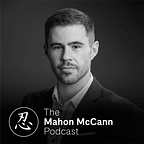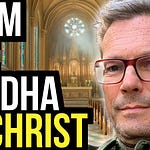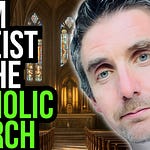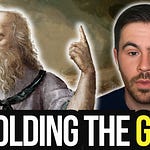“You have often heard me speak of an oracle or sign which comes to me, and is the divinity which Meletus ridicules in the indictment. This sign I have had ever since I was a child. The sign is a voice which comes to me and always forbids me to do something which I am going to do, but never commands me to do anything, and this is what stands in the way of my being a politician.”
— Socrates, Plato’s Apology
Socrates and His Daimonion.
15th February 399 BC - The Athenians put Socrates on trial for trumped-up charges of corrupting the youth and worshipping false gods and he is found guilty and sentenced to death. Part of the reason for the charge was Socrates Daimonion, a voice which spoke to him and told him what not to do. The word Daimonion is notoriously tricky to translate, but Cicero refers to it as divinum aliquid — a ‘divine something.’ For later thinkers, like Plutarch, the Daimonion became a Daimon, a personal spirit, which Plutarch related to Conscience.
Socrates’ friends urged him to run away when he was put on trial, one even went so far as to bribe the guards, but when Socrates consulted his Daimon on the issue, the voice said ‘no.’ Socrates faced a moral dilemma: Listen to the Daimon and die? Or ignore the Daimon and live? Socrates concluded that the Daimon had only ever told him good things in his life so therefore, death must not be a bad thing. He drank the poison and died, and the rest is history (literally).
The Voice of Conscience.
For the past three weeks, I’ve discussed personal development on the podcast and the thought occurred that our behaviour is controlled and regulated consciously by the voices in our mind, what Sigmund Freud would call the Super-ego. Of course, we ask other people and confer, but when we make decisions and think something over, this process occurs in the mind as a conversation. The question is, a conversation with who?
Conscience As The Voice of Character.
“Ethos Anthropos Daimon” (Character is fate or character is to a man, his Daimon) - Heraclitus
My problems with my Conscience started with issues with authority as a teenager. Until my late teens and early twenties, I had no real relationship with my Conscience. I didn’t do some things because I felt it was a bad thing to do, but rather in a calculating sort of way, because my parents or teachers would be mad at me, and that would suck.
An actual quote from my writing aged 20, ‘authority is the true enemy of all mankind.’ My parents, teachers, the Gards, the government, and anybody in a position of authority, in my opinion, were illegitimate. As Millennials, in general, we have issues with authority because, of course, once bitten, twice shy. We have seen institutions crumbling around us and felt the anger and cynicism of children who have been let down.
My anti-authoritarian philosophy allowed me to reject my own inner authority (Conscience) and to behaviour in any impulsive-pleasure-seeking way that I wanted. This is because when you reject authority outside, you also reject authority inside. My Anti-authoritarian fun was short-lived and I ended up stuck following the group, with no discipline, goals, boundaries of my own, only tons of negative emotion, confusion, existential crisis, inner chaos, impulsive-pleasure seeking, bad poetry, bad relationships, and overall, hell.
The Conscience is an authority, and getting back in touch with the Conscience means again justifying that some authority is good and necessary. If you condemn authority outside you, you condemn authority within, and it is the authority within is what guides you through life. The conscience is responsible for personal development, or not.
So, How do we improve our Conscience?
My central thesis is that individuals should be responsible for their personal development, not me or anybody else. As Cicero said,
‘No one can give you wiser advice than yourself.’
But the problem is, like when I was younger, we aren’t that wise! My counsel to myself wasn’t good, or at least I didn’t listen if it was. So I found myself on a path of destruction, immoral and often downright dangerous. So how do you strengthen the advice that you give to yourself?
That seems obvious, education? The job of teaching is to grow and make your own inner guiding voice more sophisticated and to put our childish, ignorant selves in conversation with the greatest minds and lives of human history? Except generally that doesn’t happen in the education system these days and so we are left bereft of that composite character, that inner voice, that can guide our development. The Stoics had a way of dealing with this problem: the contemplation of the ideal sage.
The exercise was to imagine someone you admire (for the Stoics, this would often be Socrates) and to internalise their character, what you admire about them, what makes them good, how they act, how they think, how they judge and to ask yourself at times of moral decisions, what would they do?
In other words, you emulate their example. But as you grow older, you build on their example with other people’s examples and discern a good example from a bad example and you define what it means to be a good person. Through negotiating with that inner authority, you develop an inner teacher, a mentor like Yoda in Star Wars. But one that has been strengthened with the ideas and thoughts of tradition and thousands of human lives. This is how you guide yourself well through life.
Conclusion.
There is so much more that could be said about this topic. But Socrates looked at the Daimon as the spark of the divine within and the voice of the Gods, and as a guide, he could rely on - that’s a superpower as far as I’m concerned.
But the Conscience is not perfect and must be developed to develop your development!
Rationalisations, excuses, willful ignorance and lies pathologise your conscience and damage your judgement, making you lost and without guidance.
Education should deepen and enrich your conscience and help you internalise figures you admire to bootstrap your conscience.
If you develop your conscience you can trust your own judgement, tell right from wrong, and guide yourself through life effectively.
Listening to your Conscience requires courage because it often brings you into conflict with other people. It takes wisdom to discern good advice from bad advice and learn right from wrong - Luke Skywalker eventually has to leave Yoda behind, so at times it is necessary to go beyond your conscience in order to re-vitalise it. There’s no straightforward path here.
You have to be temperate to not destroy the voice with impulsive pleasures, and just to balance the demands of the conscience with your own needs and safety. But according to everything I’ve learned thus far, this is the place where personal development begins. This all starts with that relationship with your inner voice, with your inner god, and is something which is under your control.
(Did you enjoy this essay? Then please share it below)












